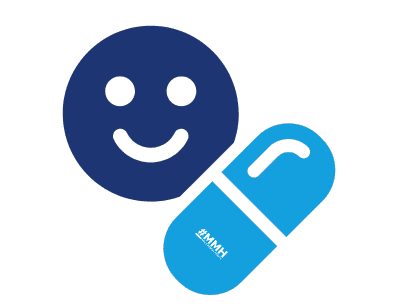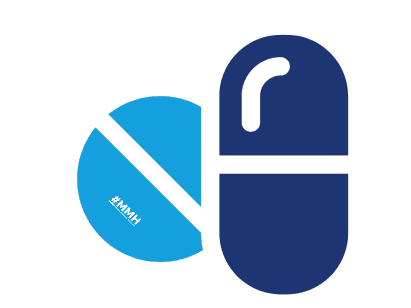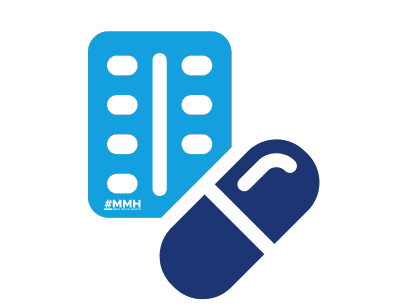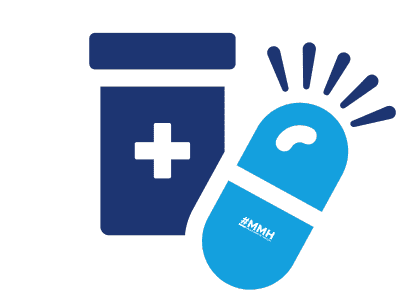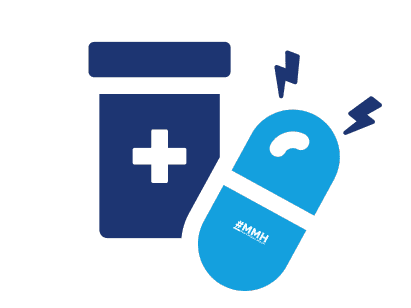This platform does not provide direct support. We do not offer crisis intervention, therapy, counselling, or medical advice. Instead, we provide information and signposting to external services that may be able to help.
Medication
Feeling stuck and unable to cope? You are not alone—help is available.
Need to talk?
Samaritans are here to listen, 24/7, 365 days a year. You can call them for free on 116 123 or visit www.samaritans.org
Prefer to Text?
Shout is a free, confidential, 24/7 text messaging support service for anyone who is struggling to cope.
If you feel in danger please call 999 or go directly to emergency services.
Medication: A Tool for Managing Mental Health
Medication can be an effective tool in managing mental health conditions when prescribed by a qualified healthcare professional. It helps regulate mood, reduce anxiety, and improve overall well-being, often as part of a comprehensive treatment plan alongside therapy and lifestyle changes.
📌 For some individuals, medication provides essential support in managing mental health conditions and improving daily functioning.
If you’re considering medication, understanding how it works and what to expect can help you make an informed decision.
What is Psychiatric Medication?
Psychiatric medication is prescribed to help manage symptoms of mental health conditions such as depression, anxiety, bipolar disorder, and schizophrenia.
✅ How medication works:
✔ Balances brain chemicals (neurotransmitters) that influence mood and behavior.
✔ Helps regulate emotional responses, improving mental stability.
✔ Supports therapy and lifestyle changes for a holistic approach to mental health.
📌 Medication is not a “one-size-fits-all” solution—it works best as part of a broader mental health plan.
How Can Medication Help?
Mental health medication offers several key benefits, depending on the condition being treated:
🔹 Stabilising Mood – Helps regulate emotional highs and lows.
🔹 Reducing Anxiety & Panic Attacks – Eases overwhelming feelings of fear or stress.
🔹 Managing Depression – Alleviates persistent low mood and negative thoughts.
🔹 Improving Sleep – Supports better sleep patterns for overall well-being.
🔹 Enhancing Focus & Concentration – Helps with attention-related difficulties.
📌 For some individuals, medication provides relief that enables them to engage more effectively in therapy and daily activities.
What to Expect from Psychiatric Medication?
If prescribed medication, you can expect the following steps:
✅ Initial Consultation – A GP or psychiatrist assesses symptoms and determines if medication is appropriate.
✅ Adjustment Period – It may take a few weeks to notice full effects, as the body adapts.
✅ Possible Side Effects – Some medications may cause temporary side effects that often improve over time.
✅ Regular Monitoring – Follow-up appointments assess effectiveness and adjust dosage if needed.
✅ Long-Term or Short-Term Use – Some medications are used for brief periods, while others may require long-term management.
📌 Open communication with your doctor is important to ensure the medication is working effectively with minimal side effects.
Types of Mental Health Medication
Different medications serve different purposes in mental health treatment:
🟡 Antidepressants
Used to treat depression, anxiety disorders, and OCD by balancing neurotransmitters like serotonin.
Read More: Antidepressants
🟡 Anti-Anxiety Medications
Help manage anxiety and panic attacks, often working as fast-acting relief.
Read More: Anti-Anxiety Medications
🟡 Mood Stabilisers
Often prescribed for bipolar disorder to manage mood fluctuations.
Read More: Mood Stabilisers
🟡 Antipsychotics
Used for schizophrenia and severe mood disorders to regulate thought processes.
Read More: Antipsychotics
🟡 Stimulants
Prescribed for ADHD to enhance focus, concentration, and impulse control.
Read More: Stimulants
📌 The right medication depends on individual needs, symptoms, and medical history. A healthcare professional will guide this decision.
🚨 Medication can be a valuable part of mental health treatment, but it works best when combined with therapy, self-care, and lifestyle changes. If you’re considering medication, speaking with a professional is the best first step.
Finding Support for Medication Management
If you’re considering medication for mental health, it’s essential to consult a healthcare professional. Options in the UK include:
- Your GP – The first point of contact for discussing symptoms and potential treatment options.
- NHS Mental Health Services – Referral-based psychiatric assessments and medication reviews.
- Private Psychiatrists – Specialist support with shorter wait times.
- Pharmacist Consultations – Guidance on medication use and potential interactions.
- Support Groups & Helplines – Charities and organisations offering medication advice and peer support.
Medication can be a valuable tool in managing mental health, but it works best as part of a holistic approach that includes therapy, lifestyle changes, and ongoing support. Always seek professional medical advice before starting or changing any medication.
While we aim to provide accurate and updated information, MMH Men’s Mental Health is not responsible for the quality, accuracy, or availability of external services linked on this page. If you notice a broken link or have a resource to suggest, let us know.
Self-Help Strategies When Taking Medication
While medication can be beneficial, incorporating healthy habits can enhance its effectiveness. These are general suggestions and may not work for everyone.
If your struggles persist or affect your daily life, consulting a professional is recommended.
Follow Prescribed Dosage
Monitor Side Effects
Maintain a Healthy Lifestyle
A balanced diet, exercise, and proper sleep can support treatment.
Stay Consistent
Communicate with Your Doctor
You Are Not Alone.
Reaching out is a sign of strength, not weakness.
Take the next step:
Need to talk?
Samaritans are here to listen, 24/7. You can call them for free on 116 123 or visit www.samaritans.org
Prefer texting?
Shout offers free, 24/7 confidential support. Text ‘SHOUT’ to 85258 to start a conversation or visit
www.giveusashout.org
Explore More
Looking for guidance? Browse external resources on mental health, self-care, and well-being.
Connect with peers in a safe, judgment-free space.

